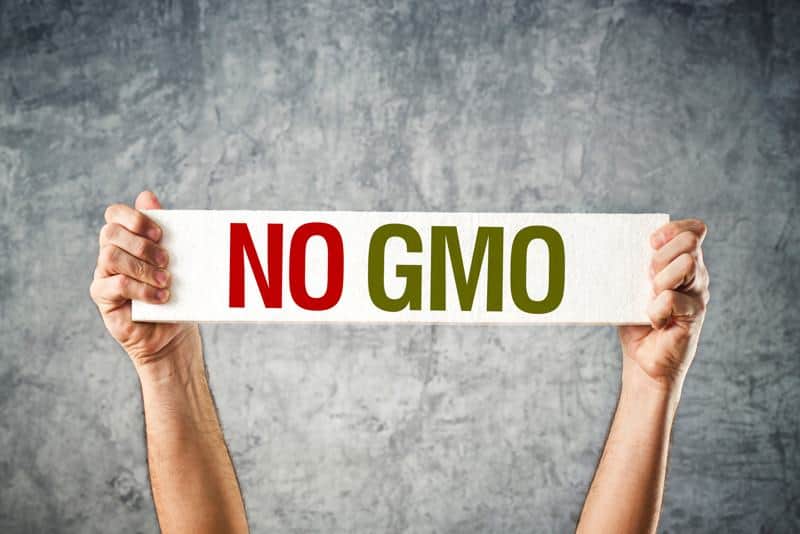Saying No to GMO – What Does It Mean?

What does Non-GMO mean? Genetically modified organisms, or GMO for short, are living organisms whose genetic material is being artificially manipulated in a laboratory through genetic engineering. Consequently, this creates combinations of plant, animal, bacteria, and virus genes that do not occur in nature or through traditional crossbreeding methods. With each new genetic modification that occurs, we move further away from nature. Controversially, there is currently no substantial evidence yet that any of the GMOs on the market offer any benefits, like an increase in yield, drought tolerance, enhanced nutrition, or any other consumer benefit. So, knowing this, should we be saying no to GMOs?
Which Foods Might Have GMOs?
- Many packaged foods are made from corn, soy, canola, and/or sugar beet. These crops are known to typically grow in North America using genetic modifying practices.
- Additional crops at high-risk for GMOs are cotton, papaya, yellow squash, zucchini, and potato.
- Products coming from animals can be high-risk because of genetically engineered ingredients commonly in animal feed.
- Those products are eggs, milk, meat, honey, and seafood.
- Products occurring from the processing of foods or inputs from other types of genetic engineering, like synthetic biology.
- Some of these products are molasses, sucrose, flavorings, vitamins, yeast products, and sweeteners.
What Does a Non-GMO Claim on a Product Mean?
How do you know if the foods you are eating contain GMOs? Unfortunately, just because a product has a non-GMO claim on the package does not mean the product is truly non-GMO. A generic non-GMO claim might not be reliable because there are no clear, consistent, or enforceable rules in place to substantiate the claim. However, there are credible organizations that do have clear, consistent, and enforceable rules in place, and those organizations’ claims we can trust. One of those is, the Non-GMO Project.
The Non-GMO Project
The seal likely shows up on many products you already purchase. You probably see it on the shelves at stores, too. We’re talking about the non-GMO seal. The butterfly resting on a long grass stem is appearing more frequently. And for good reason! The Non-GMO Project is a non-profit organization grounded in transparency and choice for consumers. With our knowledge that GMOs have no proven safety and in fact come with known dangers, we as consumers should have the choice to omit them from the foods that we eat.
The Non-GMO project does that heavy lifting for you. They commit their entire purpose to verifying that products are without genetically modified organisms. What’s more, up until very recently, there was no legislation requiring the labeling of GMOs on food labels. Changes are being made, but not quickly enough. The publishing of the National Bioengineered Food Disclosure Standard (NBFDS) in 2018 helps. But it’s not enough. It makes it so some foods will need a label stating they do contain GMOs come 2022. But, there are many exemptions that keep the law from offering the full protection United States citizens deserve.
Where Do We Go From Here?
At this point, genetically modified organisms are merely an experiment. And with the help of the Non-GMO Project and others, we can take back making our own food choices and opt-out of the experiment. Getting the word out to your friends and family can help to raise awareness of what GMOs are. Purchasing products that are non-GMO or making donations also help support the work that organizations such as the Non-GMO Project do to keep our foods safe.
